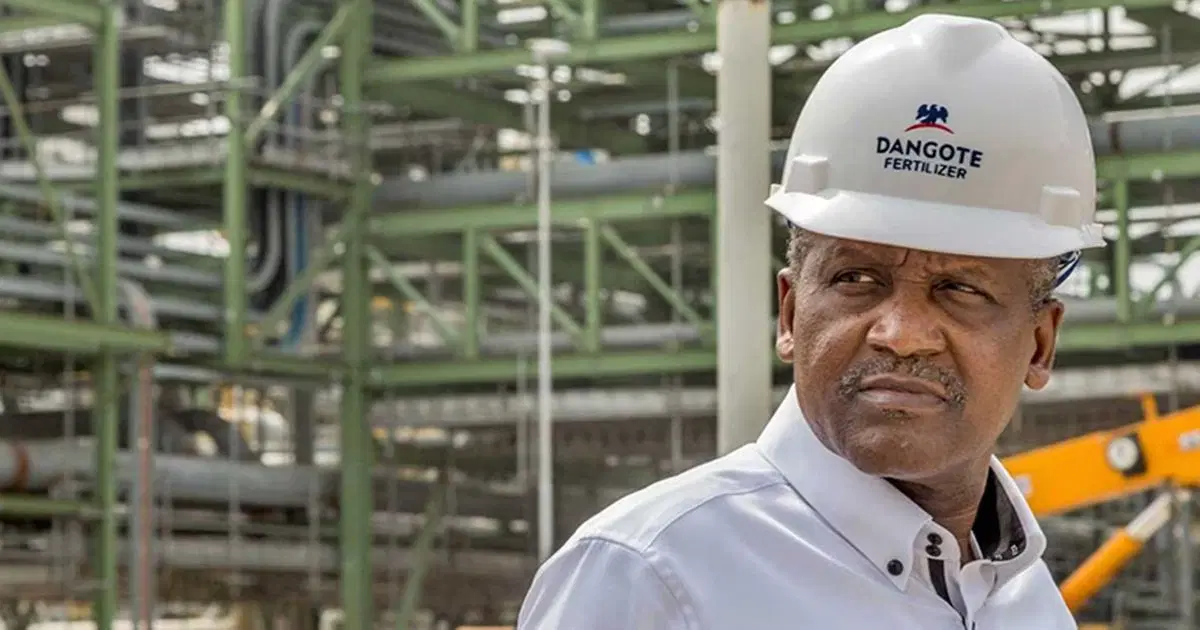BUSINESS

NIGERIANS PAY 55% LESS FOR PETROL COMPARED TO WEST AFRICAN NEIGHBOURS – DANGOTE
Aliko Dangote, President of the Dangote Group, has disclosed that Nigerians currently pay just 55% of what citizens in other West African countries spend on petrol (Premium Motor Spirit).
Speaking during a courtesy visit by the President of the ECOWAS Commission, Dr. Omar Touray, to the 650,000-barrels-per-day Dangote Refinery, the billionaire industrialist explained that petrol at the facility is being sold at between ₦815 and ₦820 per litre—far below the regional average of $1 per litre (about ₦1,600).
Dangote attributed this price drop to the impact of local refining, emphasizing the role his refinery has played in reducing fuel prices and supporting economic activity across several sectors. He cited diesel as an example, noting how its price dropped from ₦1,700 to ₦1,100 shortly after the refinery began production last year—a change that has since had a ripple effect across industries including mining and agriculture.
“Most Nigerians are unaware that they are paying far less for fuel compared to neighbouring countries,” he said, reaffirming that the refinery was built to serve Nigerians and ensure they benefit directly from local production.
He also hinted at future plans yet to be disclosed, promising even greater value from the refinery moving forward. Dangote used the opportunity to stress the need for African nations to boost intra-continental trade and reduce reliance on imports, stating that Africa’s development depends on its ability to produce and refine goods locally. “There have been misconceptions that we can’t meet Nigeria’s fuel demand, let alone supply the region. But this visit has given ECOWAS leaders a firsthand view of our capabilities,” he noted, calling for increased support for large-scale industrial projects across the continent.
Dr. Touray praised the refinery as a “beacon of hope” for Africa, highlighting its significance in achieving industrialization and reducing dependency on foreign imports. He was particularly impressed by the facility’s adherence to the Euro V fuel standard, which aligns with ECOWAS’ environmental benchmarks—standards that many imported fuels fail to meet.
“What I’ve seen here surpasses my expectations. This shows what is possible when the private sector leads with vision and commitment to Africa’s development,” Touray stated. He emphasized that governments must engage more closely with industrial leaders to shape effective policies, and he reaffirmed ECOWAS’ commitment to collaborating with the private sector to strengthen regional economies.
“Our visit is about listening, learning, and working with business leaders like Dangote to create a supportive environment for industrial growth,” he said, adding that industrialization is key to addressing youth unemployment, poverty, and insecurity across the region.
Touray concluded by pledging ECOWAS' support for opening up broader markets for the Dangote Group, not only within the subregion but across the entire African continent.
The ECOWAS delegation included key officials such as Commissioner for Infrastructure, Energy and Digitalisation, Sediko Douka; Commissioner of Internal Services, Prof. Nazifi Darma; Director of Private Sector/SME, Dr. Tony Elumelu; and Dr. Touray’s Chief of Staff, Abdou Kolley.
"This represents a significant development in our ongoing coverage of current events."— Editorial Board









